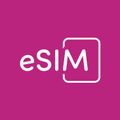Simfinity Telco LLC - propose des solutions eSIM abordables et flexibles pour les voyageurs internationaux, permettant une connectivité transparente dans plus de 190 pays sans avoir besoin de cartes SIM physiques. Avec une activation instantanée, aucun frais d'itinérance et des forfaits de données adaptés aux voyageurs, Simfinity garantit que rester connecté dans le monde entier est simple et sans tracas.

Simfinity Telco LLC - propose des solutions eSIM abordables et flexibles pour les voyageurs internationaux, permettant une connectivité transparente dans plus de 190 pays sans avoir besoin de cartes SIM physiques. Avec une activation instantanée, aucun frais d'itinérance et des forfaits de données adaptés aux voyageurs, Simfinity garantit que rester connecté dans le monde entier est simple et sans tracas.
Forfaits de données eSIM Simfinity pour le Moyen-Orient
Questions fréquemment posées
Simfinity propose-t-il des eSIM à données illimitées pour le Moyen-Orient ?
Simfinity ne propose pas de plan eSIM à données illimitées pour le Moyen‑Orient. Tous les plans disponibles disposent d’une limite de données, soit 25 GB ou 10 GB, et peuvent être activés pour une validité illimitée ou d’une durée de 30 jours.
Pour les voyageurs qui ont besoin d’un volume de données plus important, Simfinity propose des options fixes. Par exemple, le Middle East Pass donne 25 GB de données pour une validité illimitée à 99, 80 USD et permet le tethering, tandis qu’un Middle East Pass de 10 GB est disponible pour une validité illimitée à 43, 40 USD, également avec tethering. Ces exemples illustrent le type de plans que Simfinity propose ; d’autres options à forfait fixe existent, et choisir un plan fixe peut être plus rentable, sauf si l'utilisateur est un consommateur de données extrêmement intensif.
Simfinity propose-t-il une eSIM du Moyen-Orient avec numéro de téléphone et SMS?
Simfinity ne propose pas de plans eSIM du Moyen‑Orient qui incluent un numéro de téléphone ou la capacité SMS. Les plans disponibles de Simfinity au Moyen‑Orient sont uniquement pour les données. Les voyageurs qui ont besoin de passer des appels ou d’envoyer des messages texte peuvent utiliser des applications VoIP populaires telles que WhatsApp, Telegram ou iMessage sur la connexion de données, mais un numéro de téléphone traditionnel et un service SMS ne sont pas fournis.
Quels pays sont couverts par les forfaits eSIM de Simfinity au Moyen-Orient ?
Le Middle East Pass de Simfinity inclut les Émirats arabes unis, Israël, Jordanie, Koweït, Palestine, Qatar, Arabie Saoudite et Turquie, tandis que son Global eSIM ajoute une couverture à l'Arménie, à l'Azerbaïdjan, au Bahreïn, à la Géorgie, à l'Irak et à Oman en plus des mêmes pays du Moyen‑Orient listés ; un World Wide Pass couvre également le groupe du Moyen-Orient mais s'étend à de nombreux territoires hors de la région.
Résumé avec Gen AI. Dernière mise à jour:




